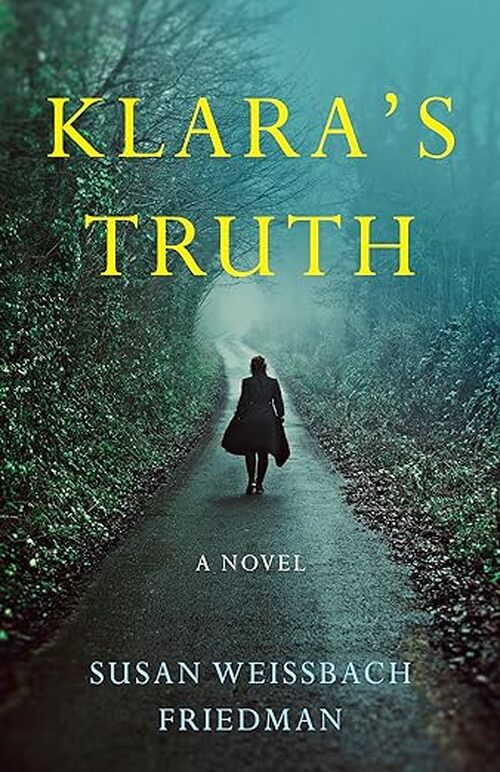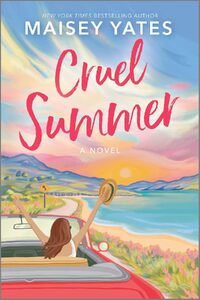How would you describe your family or childhood?
I don’t like to talk about my childhood or my family very much. My father, who I loved very much, left when I was six years old, and I never heard from him again. My mother and maternal grandfather raised me, and they were both cold, elusive, unhappy people. I withdrew into myself and delved into many good books and my academic studies.
What was your greatest talent?
My greatest talent was being a very good student. I was smart, but I also studied all the time.
I knew by the time I started high school that this would be my ticket out of my family’s grip, and I was determined to graduate in three years rather than four.
Significant Other?
For a very long time, I had no significant other to speak of, just short-term relationships, but as you know, I met Filip Jablonsky, and we’ve now been together ever since. We’re in a devoted relationship and he’s a pivotal part of my life.
Biggest Challenge in Relationship?
The biggest challenge in my relationship with Filip and with all others is my Achilles heel of not trusting anyone easily. I know this is because the one person in my life who cared about me when I was a child, my father, then “disappeared” when I was only six. The people who took care of me after that were harsh and unfeeling. In addition, I was sexually abused by a close family friend of theirs, and my mother didn’t believe me when I told her of this. So, I really had no one I could trust after my father was gone. However, since I’ve learned my father actually died when I was young, and had always intended to come back for me, I’ve been able to take in his early love and kindness, and begin to open up to trusting others like Filip, my aunt and my cousin.
Do you have enemies?
That’s an interesting question. When I first came to Warsaw to look for my father’s family, I came in contact with my cousin Hanna, the daughter of my Aunt Rachel, my father’s sister. She was quite suspicious of me for a while as to my true motives for coming to Warsaw when I did, as the timing coincided with money our families were to be paid by the Polish government. She did treat me a bit like a it like an enemy at first, and it took time before she could trust me. It’s strange to say, but now we’re actually good friends.
How do you feel about the place where you are now?
I couldn’t be happier. I finally feel relatively calm, and dare I say even at peace. I dealt with confronting my mother in the United States some months ago but have since let go of much of my rage toward her go, as I knew she could never give me the honest answers I so craved. Through my growing relationships with my father’s family, especially Rachel and Hanna, and of course my relationship with my partner, Filip, Warsaw is my home. I feel like I belong here. I never truly felt like I belonged before.
Do you have children, pets, both, neither?
No. Sadly I never had children. I don’t think I would have been emotionally prepared to raise them in a way they would have deserved, as at the age of now fifty years old, I’m first learning to emotionally connect with others, rather than to just survive. I’m getting closer to Filip’s teenage son, Jan, however, and we’re doing okay. I like the idea of a pet. Maybe I’ll give it more thought.
What do you do for a living?
My academic background is as an archaeologist. I have a Ph.D. in Anthropology with a specialty in archaeology. I was a professor and researcher for many years, focusing on the Mesoamerican period, conducing many digs in Central America. However, since coming to Poland, I’ve become intrigued and quite disturbed by all the desecrated Jewish cemeteries here from the Nazi era, and have decided, with Filip’s help, and the aid of others, to work on reconstructing some cemeteries, and having memorial plaques put up by the government to commemorate others. Believe it or not, there were over a thousand Jewish cemeteries in Poland before WWII.
What do you do to entertain yourself or have fun?
I like to listen to music, and I even learned that I like to dance too. I first realized this in going to the Krakow Jewish Culture Festival which happens every July. I also like going to museums and movies. Sometimes Filip and I will see a movie with Jan.
What is your greatest personal failing, in your view?
My greatest personal failing is definitely that it takes me a while to open up and trust others for the reasons I explained above. I’m working on it in my close personal relationships, and even with acquaintances.
What keeps you awake at night?
Not knowing what really happened to my father after he “disappeared” is what kept me up at night for a long time. Then, I buried it, trying to forget, as there were no answers forthcoming. Now that I know what really happened to my father, that he died in a terrible train accident, was buried here in Warsaw’s Jewish cemetery by his sister, and that he always planned to come back for me, I think details about work are mostly what keeps me up at night.
What is the most pressing problem you have at the moment?
My most pressing issue is that I’m trying to raise more funds to expand our work on rebuilding former Jewish cemeteries that were destroyed by the Nazis. There is so much work to do, and more money is most definitely needed.
Is there something you need or want that you don’t have?
There so me any things that I feel very grateful for in my life—Filip, my aunt, my cousin and her family, the work I have the privilege of doing. As I said above, more funds from Jewish grants, governments, and private individuals to continue to resurrect former cemeteries and place more plaques where appropriate would be amazing.
Why don’t you have it? What’s in the way?
Well, there are so few Jewish families who still live in Poland, and Jewish families and communities are typically the ones who would take care of their loved one’s gravestones, but millions were killed in the Holocaust as you know. There are less than ten thousand Jews who still live in Poland— somewhere between three and ten thousand. We’re trying to get the word out to Jewish families and organizations with ancestral ties and connections to Poland, particularly to what was formerly known as Galicia where many Jewish families once lived. They now reside throughout the world. We’re also trying to get government grants as I mentioned before.

It is May 2014, and Dr. Klara Lieberman—forty-nine, single, professor of archaeology at a small liberal arts college in Maine, a contained person living a contained life—has just received a letter from her estranged mother, Bessie, that will dramatically change her life. Her father, she learns—the man who has been absent from her life for the last forty-three years, and about whom she has long been desperate for information—is dead. Has been for many years, in fact, which Bessie clearly knew. But now the Polish government is giving financial reparations for land it stole from its Jewish citizens during WWII, and Bessie wants the money. Klara has little interest in the money—but she does want answers about her father. She flies to Warsaw, determined to learn more.
In Poland, Klara begins to piece together her father’s, and her own, story. She also connects with extended family, begins a romantic relationship, and discovers her calling: repairing the hundreds of forgotten, and mostly destroyed, pre-War Jewish cemeteries in Poland. Along the way, she becomes a more integrated, embodied, and interpersonally connected individual—one with the tools to make peace with her past and, for the first time in her life, build purposefully toward a bigger future.
Women's Fiction [She Writes Press, On Sale: June 11, 2024, Paperback / e-Book, ISBN: 9781647426101 / ]
Susan Weissbach (Friedman), LCSW, is a psychotherapist with a specialty in women's issues, family therapy, and trauma-focused therapy. A graduate of Hamilton College, Boston University's MSW/MPH program, and the Ackerman Institute for the Family, She is also EMDRIA certified and a Somatic Experiencing Practitioner (SEP). She has been in practice for more than twenty-five years. She is not currently accepting new clients. She lives in the New York area with her husband, and has two young adult daughters and an Australian Shepherd. "Klara's Truth" is her first novel.
No comments posted.


 © 2003-2025 off-the-edge.net
all rights reserved Privacy Policy
© 2003-2025 off-the-edge.net
all rights reserved Privacy Policy